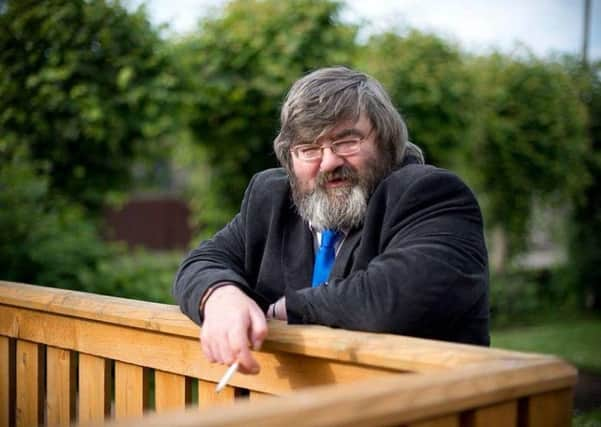Obituary: Martin Boland, singer who was '˜heart and soul' of Edinburgh's folk scene


Words like “legend”, “stalwart” and “veteran” get bandied around a lot these days, but those who knew Martin Boland will understand that such language doesn’t even come close to describing the impact he had, not just musically, but as a friend and close confidante to so many.
Growing up in Dundee at the tail end of the Jute industry’s decline, he said he still remembered hearing the sound of the last “bummer” sirens, which called workers to the factories, and while Martin went on to become one of Edinburgh’s adopted sons, he was always a Dundonian, heart and soul.
Advertisement
Hide AdAdvertisement
Hide AdHe started out playing music as a teenager, when his repertoire tended towards hymns learned mainly from his guitar teacher, whom Martin paid tribute to in his song So Long Since: “It’s been so long since you let me play along, I’m still playin’ the way that you taught em’, a hint of country harmony and a bit of bottle blues, a line or two of old rock and roll, we’d sing those melodies just anyway we choose, with lines from the hymn book that we stole”
It would be some years before Martin settled into the Edinburgh folk music scene, coming at it – as he did – following a career as a nurse. In the early nineties, he discovered the Royal Oak pub in Edinburgh’s Southside, where Neil Thomson was running sessions.
It was around that time that he began to gravitate towards life as a full time musician. Indeed, Neil Thomson became one of a number of performers that Martin formed significant musical partnerships with over the years, as well as the likes of Tom Fairnie, Ian Robertson and Alan Hunter.
Drawing inspiration from the music which formed the soundtrack of his childhood and teenage years, he immersed himself in the music of performers like Neil Young and Crosby, Stills and Nash. But when push came to shove, his greatest influence was always John Martyn, a man whose life and music undoubtedly drew parallels –in more ways than one – with Martin’s own.
By the early 2000s, Martin had established himself as a stalwart of the Royal Oak in Edinburgh, and it was his ability to capture an audience, bringing everyone along with him, that made him such a uniquely popular figure amongst the live music scene in Edinburgh.
The list of young musicians who can trace their first tentative steps to the encouragement of Martin is endless, and the tributes following his death are testament to that. There are few young folk musicians in Scotland’s capital who do not feel in some way indebted to Martin.
He once claimed to have around 700 songs in his head at any given time, an impressive feat, perhaps, but he didn’t think so. He told me that “in any one night I’ll get asked for maybe 40 or 50 songs I don’t know, because when you think of the amount of songs that have been written, 700 is nothing”.
That, of course, was typical of Martin’s modesty, and the conflict that lay at the heart of his whole existence as a musician.
Advertisement
Hide AdAdvertisement
Hide AdAs with so many great performers, Martin grappled with a great many demons, and he struggled with them throughout his life, but the one place he always seemed content, at home, at one with the world, was when he was doing what he did best: performing.
In his final hours at Edinburgh’s Royal Infirmary, the corridor outside his ward saw dozens of people filing through to say their last farewell to a man who had left such a huge impact on so many lives. It would probably not be an exaggeration to say that Martin had a friend in most countries of the world.
For those who knew Martin, this will be a difficult moment, as what he gave to those around him was more than just friendship, it was more than just music. He was the heart and soul of the Royal Oak, and thus of an entire community. He is irreplaceable, but the legacy and memory he leaves is formidable.
JACK FOSTER